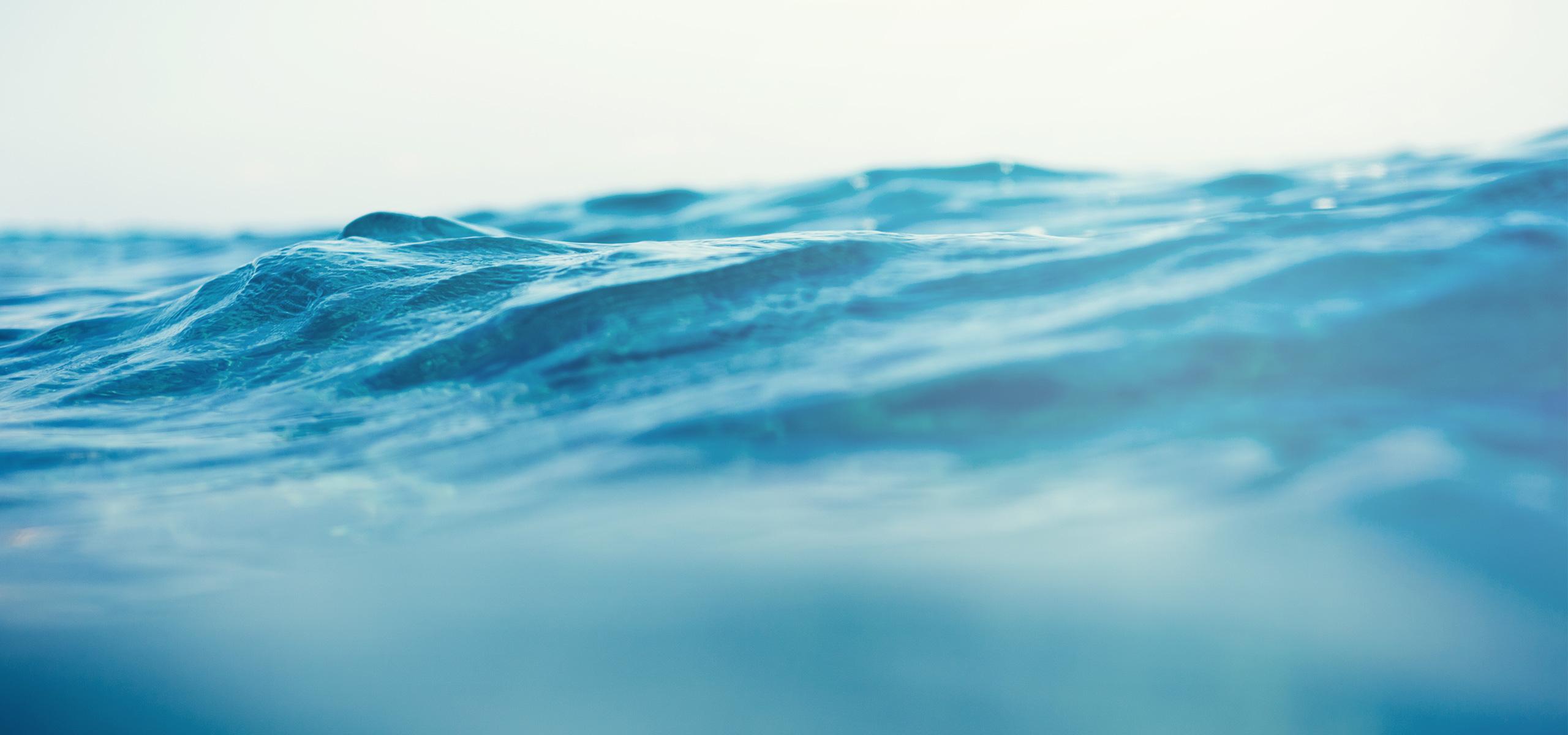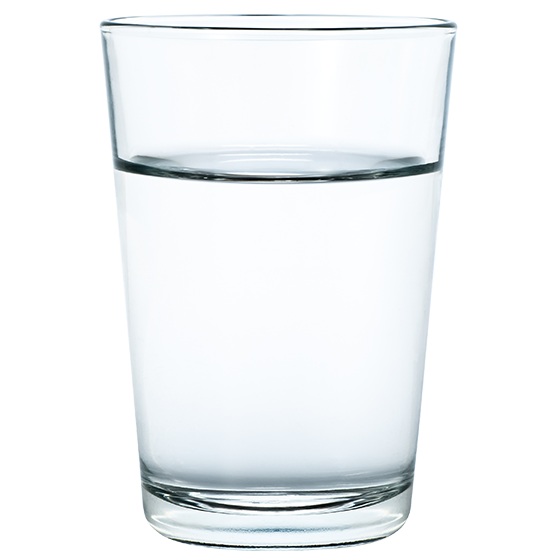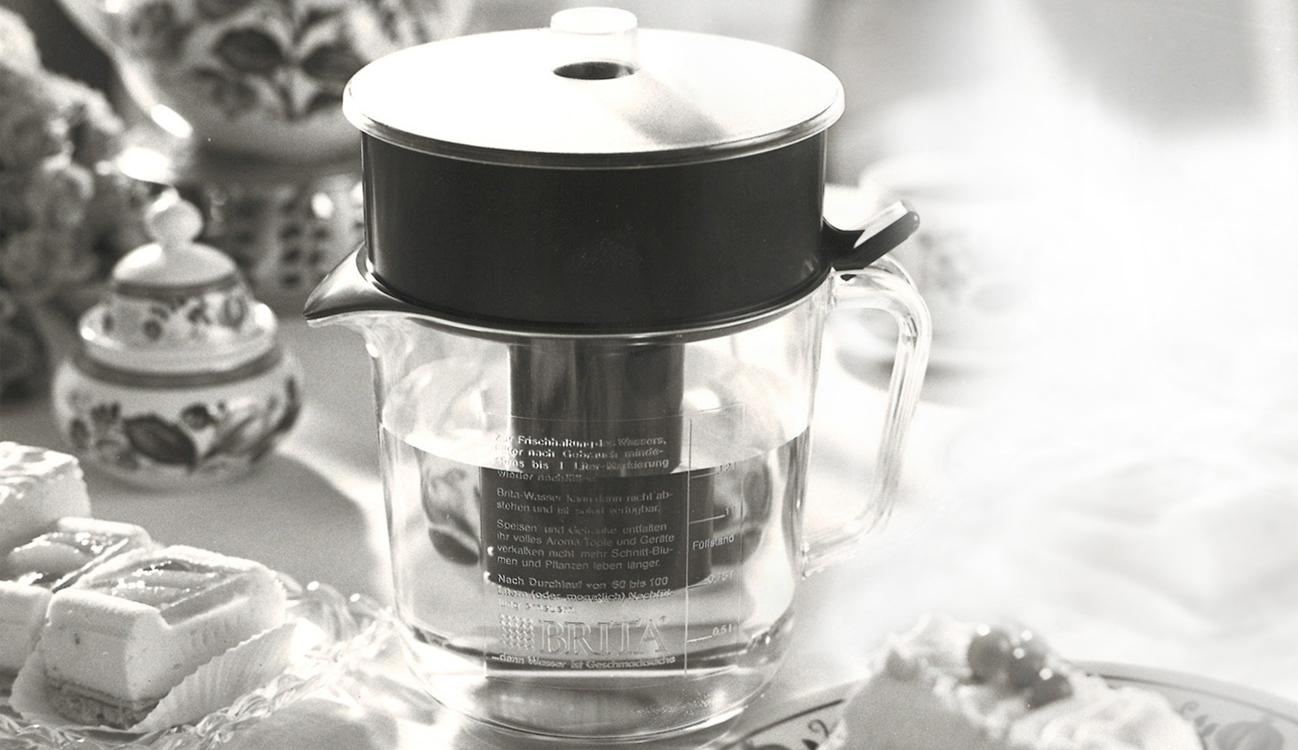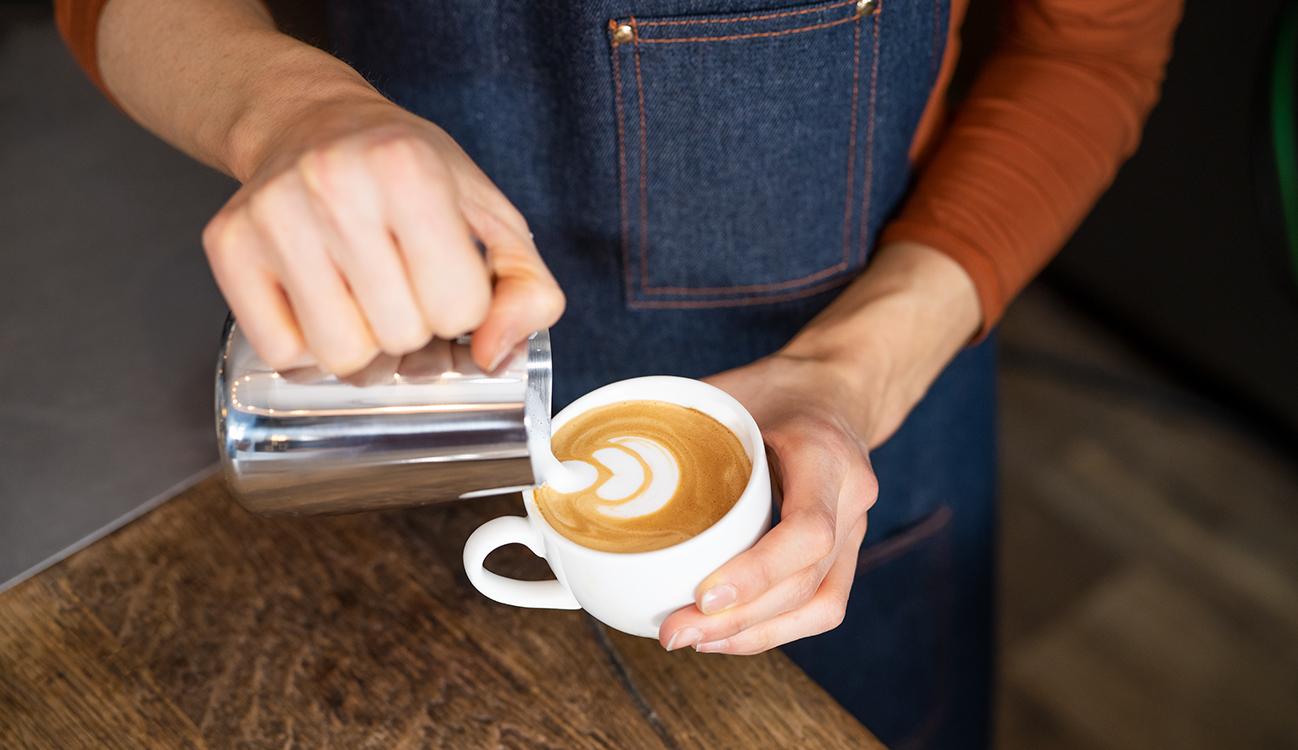Water covers 70 per cent of the earth’s surface. It contains a world of invaluable plants and animals essential to human beings. And it’s stunning to look at. But for years now, large amounts of rubbish, including many plastic bottles, have been swimming in our oceans. Time for change with BRITA water filters: they contribute to environmental sustainability.
In the carpets of waste on the world’s oceans, many plastic bottles pollute the water alongside plastic bags, lighters and various other plastic items.


Being kind to the planet
Think and act sustainably – to protect lives and resources

Plastic bottles have a lifespan of up to 400 years
The problem: it takes up to 400 years for nature to biodegrade a plastic bottle. First, larger pieces decompose into smaller particles. Later, they invisibly stick to your feet when you walk barefoot across the beach. Whales, dolphins and other inhabitants of our oceans get snared in plastic debris and perish. Coral is destroyed by floating waste, and fish mistake plastic for food and ingest it. This explains how micro plastics end up in our food chain. But the fact remains that plastics have no place in vegetable soup.
Furthermore, when plastic waste in our oceans washes up on beaches, it poses a threat to numerous tourist destinations and deprives local populations of their livelihood. Farmers in costal areas, desalination plants and hydro-electric power stations also suffer from the man-made mess.
The thoughtless use of plastics and irresponsible handling of plastic waste have fatal consequences for oceans worldwide. As consumers, we can actively contribute to the health of our planet by reducing plastic waste. Every little counts!
Caring for the environment with BRITA filtered water
People who enjoy drinking water are quick to reach for plastic water bottles when out and about. They are lighter than glass bottles and typically cost significantly less. By drinking BRITA filtered water instead, you can save money – and help save the environment.
At BRITA, we care deeply about our products’ impact on the environment. So much, in fact, that we had them scientifically tested. The findings revealed that one litre of BRITA filtered water generates up to 25 times less CO2 than one litre of bottled water. Why? Because a BRITA MAXTRA+ filter cartridge can filter many litres of water – water that would otherwise be purchased in a bottle.
Our products generate less waste, use fewer natural resources and save transport costs. In sum, this contributes to a smaller carbon footprint and a healthier planet. For instance, in 2017 alone BRITA filtered water prevented 300,000 tonnes of CO2 emissions. That is equivalent to the annual carbon emissions of 150,000 cars!
More ways to reduce plastic waste
- Consider alternatives to plastic for toys, accessories, furniture or home appliances.
- Avoid plastic packaging: products that cost more because they come in non-plastic packaging are a good investment in the planet.
- Don’t use plastic bags if possible and if you do, reuse them.
- Sort rubbish: dispose of plastic waste in the public recycling system (if available).
- Instead of cling film use grease-proof paper.
- Avoid disposable products like lighters or razors.
- Repair instead of immediately throwing away.
- Also think about what you give others as gifts.
Good for you, great for the environment!
Use our CO2 calculator below to find out how swapping from bottled to BRITA today could reduce your waste and CO2 emissions.
How much water do you drink daily?
1 litre
2 litres
3 litres
4 litres
5 litres
How much waste you generate annually
PET bottles
MAXTRA cartridges












BRITA MAXTRA cartridges help you reduce waste by {{values.kgdifference}} kg each year.
Comparison calculated based on: 1.5L PET bottle (0.035 kg) and MAXTRA cartridge (0.149 kg), values rounded, figures from November 2021
How much CO2 you generate annually
PET bottles
MAXTRA cartridges
BRITA MAXTRA cartridges help you reduce CO2 emissions by {{values.co2difference}} kg each year.
Comparison calculated based on: internal calculation based on scientific studies, values rounded, figures from November 2021
Help promote sustainability ...
-{{values.kgdifference * counterAnimation | round}}kg
-{{values.co2difference * counterAnimation | round}}kg
... and protect the environment.
Calculated based on equal consumption.
Recycling: working together for a better future
Reusing and recycling used cartridges positively affects the environment. In fact, BRITA was the world’s first water filter manufacturer to offer customers a recycling
programme, back in 1992. At the heart of the BRITA recycling scheme is our own regeneration system with an integrated waste water facility at our Taunusstein plant. Here, the recovered ion exchange resin is regenerated in-house and directly reused in new filter cartridges. This saves natural resources and reduces the carbon footprint of our products. At BRITA, we also prioritise finding ways to recycle or reuse all other cartridge materials. In a nutshell: recycling filter cartridges is an opportunity to help protect the environment.
Find out more about the cartridge recycling scheme in your country here.
Carbon footprint

A carbon footprint is an environmental indicator. It reveals the amount of carbon emissions generated by a certain action or product within a specific timeframe. The concept was developed by researchers Mathis Wackernagel and William Rees in 1994 to capture the effects of our behaviour and economic activity on the environment.












